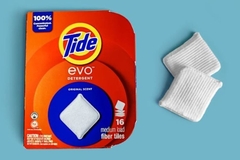Australian start-up gains funding to replace palm oil with lab-grown alternatives

Levur has secured AUD$1.2 million (US$769,780) in funding to commercialize its lab-grown cosmetic oils. The company says it produces oils identical to natural products without any environmental impact using a yeast-fermentation process.
The Australian biotech start-up believes lab-grown cosmetics are crucial for sustainability, supply chain consistency, clear traceability, and advanced function.
The innovation mainly targets ending the use of palm oil in personal care products and other everyday goods. Palm oil is a highly unsustainable ingredient, according to organizations such as the WWF and Greenpeace. It is used in many consumer products and is currently estimated to be in 70% of cosmetics, says the UK Cosmetic, Toiletry and Perfumery Association.
Personal Care Insights speaks with Tom Collier, founder and CEO of Levur, about how the company is tapping into sustainable cosmetic production by addressing the environmental issues of palm oil production, and its plans to use organic waste for cosmetic oils.
 Collier says that precision fermentation can be tailored specifically to cosmetic formulations.Yeast instead of plants
Collier says that precision fermentation can be tailored specifically to cosmetic formulations.Yeast instead of plants
The funding round was led by Main Sequence, an Australian deep tech investment fund, and GrainCorp, an Australian agribusiness. Levur aims to produce its oils on-site for large-scale cosmetic manufacturers. It is also eyeing using organic waste to fuel strains and their oil production.
“We don’t need a rainforest to produce our oils,” says Collier.
“Our oils are created through precision fermentation of yeast strains, which require ‘feedstock’ to fuel the yeast strains. This feedstock can be from many different sources, like sugarcane, and we are currently working on the potential to use organic waste as feedstock to improve circularity.”
Regarding the production process, Collier details that rather than growing whole plants, Levur grows yeast to produce an equivalent alternative to palm oil.
“Then we can additionally target our oil profiles to provide a higher purity and greater functionality to the existing oils in the market today,” he explains.
Lab-grown beauty
Lab-grown cosmetic ingredients can be tailored to the formulation’s requirements and offer consistently higher quality and purity.
“Precision fermentation ingredients offer a more reliable supply chain, as they are not contingent on weather and global supply chain disruption.”
Collier details that the oils can be a simple replacement for medium-chain triglycerides. This means it could potentially provide anti-aging benefits in skin and hair care.
“We are currently researching and developing our proprietary oil profiles, but essentially, they will be designed to include anti-ageing attributes such as antioxidants, ceramides, amino acids, and peptides.”
Consumers are also becoming increasingly environmentally conscious, searching for traceable ingredients in cosmetics brands and transparency throughout the ecological cycle.
Collier further notes how cosmetic brands and manufacturers face regulatory challenges, detailing the European Deforestation Regulations Scope 3 — ending deforestation throughout the entire supply chain — coming into effect in December 2025 for medium and large companies, and in June 2026 for micro and small companies.
“Precision-fermentation ensures higher purity, quality, and consistency, required for premium cosmetic product formulations,” details Collier.
Steps to end deforestation Palm oil mass production has resulted in significant deforestation, habitat destruction, biodiversity loss, and high greenhouse gas emissions.
Palm oil mass production has resulted in significant deforestation, habitat destruction, biodiversity loss, and high greenhouse gas emissions.
According to the WWF, palm oil supplies 40% of global vegetable oil on 6% of the land used to produce all vegetable oils. However, it also deforests some of the world’s most biodiverse forests and drives species to extinction.
“Its mass production has resulted in significant deforestation, habitat destruction, biodiversity loss, and high greenhouse gas emissions,” stresses Collier, adding that “demand is outpacing the supply of traditionally produced palm oil and derivatives.”
The WWF further detailed how forest loss and the conversion of carbon-rich soils are “throwing out million tons of greenhouse gases into the atmosphere and contributing to climate change.”
“Increasing global demand for products containing palm oil and palm oil derivatives, such as those used in cosmetics, cannot be satisfied with current unsustainable agricultural sources,” stresses Collier.
Therefore, Levur addresses this critical market gap with yeast-derived palm oil derivatives through precision fermentation.
“Delivering a sustainable, highly scalable, and high-quality alternative that will benefit manufacturers, consumers, and the environment,” Collier concludes.













